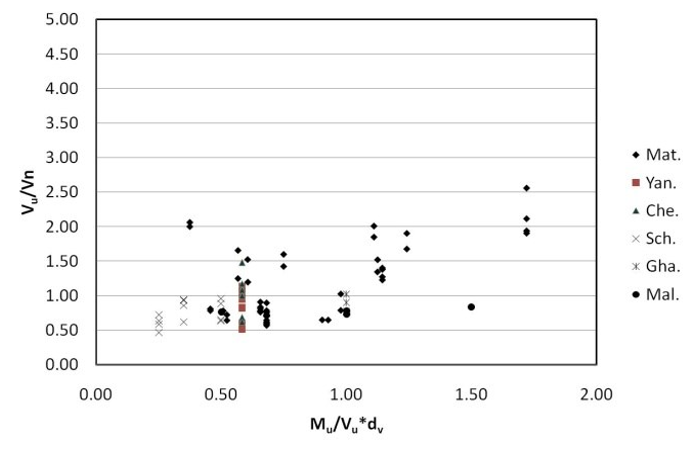Jamal H. Elmapruk, Mohamed A. ElGawady
Department of Civil and Environmental Engineering, Washington State University
ABSTRACT
Partially grouted masonry shear walls is a common structural system in North America. This paper validates the MSJC’s (2008) shear design equations by comparing the calculated shear strength of 90 partially grouted masonry shear walls tested by different researchers to the measured experimental strength. The data were collected from researchers from Japan, US, and Canada. In addition, the paper studies the effects of moment/shear ratio, horizontal reinforcement ratio, and axial stress on the ratio of the nominal shear strength to the measured shear strength. The analyses of the data showed that the current shear design equation overestimated the strength of 60 specimens out of the 90 investigated specimens. The average of the calculated to the measured shear strength was 1 with standard deviation of 0.44 and coefficient of variation of 0.44. Replacing the net shear area in the MSJC shear design equation with the face shell area improved the shear strength predictions. The current shear design equations over predicted the shear strength of only 32 specimens. The average predicted/measured shear strength was 1.39 with standard deviation of 0.76 and coefficient of variation of 0.55.
KEYWORDS:partially grouted masonry walls, shear strength, reinforcement
A2-2



